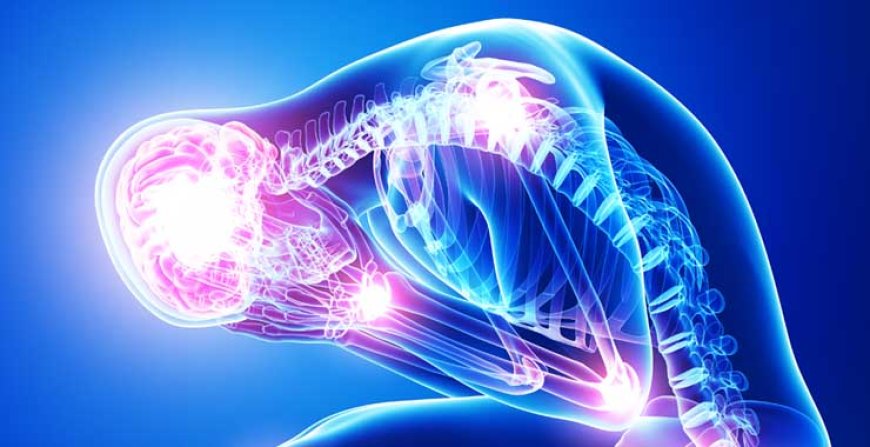The Science of Stress: How It Affects Your Body and Proven Ways to Reduce It
Learn how stress affects your body, from brain function to heart health, and discover science-backed ways to reduce stress effectively.

Stress is a natural part of life, but when it becomes chronic, it can take a serious toll on your physical and mental health. From increased heart rate to weakened immunity, stress impacts nearly every system in your body.
In this article, we’ll explore the science behind stress, how it affects different organs, and evidence-based strategies to manage and reduce it effectively.
What Is Stress?
Stress is your body’s response to a perceived threat or challenge. When faced with stress, the body activates the fight-or-flight response, releasing hormones like cortisol and adrenaline to help you react quickly.
While short-term stress can be beneficial—keeping you alert and focused—chronic stress can lead to serious health problems.
? Understanding Stress and How It Impacts Health (American Psychological Association)
How Stress Affects Your Body
Stress affects multiple systems in the body, and prolonged exposure can contribute to serious health conditions.
1. Brain and Nervous System
-
Stress increases levels of cortisol, which can impair memory and cognitive function over time.
-
Chronic stress is linked to a higher risk of anxiety, depression, and burnout.
-
Excess cortisol can lead to poor concentration and brain fog.
2. Cardiovascular System
-
Adrenaline and cortisol increase heart rate and blood pressure, putting strain on the heart.
-
Chronic stress can lead to hypertension, increased risk of heart attacks, and strokes.
-
High-stress levels are linked to elevated cholesterol and inflammation.
? How Stress Impacts Your Heart (American Heart Association)
3. Immune System
-
Short-term stress boosts immunity, but chronic stress weakens immune function, making you more vulnerable to infections.
-
Stress increases inflammation, which is linked to autoimmune diseases.
4. Digestive System
-
Stress can cause stomach pain, bloating, and irritable bowel syndrome (IBS).
-
It affects gut bacteria balance, leading to digestive disorders.
-
Stress can increase cravings for unhealthy, high-sugar foods, contributing to weight gain.
5. Skin and Hair
-
Increased cortisol leads to breakouts, eczema flare-ups, and premature aging.
-
Stress can contribute to hair thinning and even hair loss.
? The Connection Between Stress and Skin Health (American Academy of Dermatology)
Signs of Chronic Stress
Not all stress is easy to recognize. Some people experience physical symptoms, while others may have emotional or behavioral changes.
Common Symptoms of Stress:
✅ Physical Symptoms: Fatigue, headaches, muscle tension, digestive issues, frequent colds.
✅ Emotional Symptoms: Anxiety, irritability, depression, mood swings.
✅ Behavioral Changes: Overeating, insomnia, procrastination, social withdrawal.
Proven Ways to Reduce Stress
Managing stress isn’t just about relaxation—it’s about building long-term habits that keep stress levels in check.
1. Exercise and Movement
-
Physical activity helps reduce cortisol levels and release endorphins (feel-good hormones).
-
Activities like walking, yoga, and strength training can improve mood and reduce stress.
-
Even 10 minutes of movement can make a significant difference.
? How Exercise Helps with Stress (Mayo Clinic)
2. Mindfulness and Meditation
-
Practicing mindfulness meditation can reduce anxiety and improve focus.
-
Deep breathing exercises, such as the 4-7-8 technique, activate the body’s relaxation response.
-
Regular meditation has been shown to lower cortisol levels and improve emotional resilience.
3. Prioritizing Sleep
-
Sleep and stress are deeply connected—poor sleep increases stress, and stress disrupts sleep.
-
Aim for 7-9 hours of quality sleep each night.
-
Reduce screen time before bed and create a consistent bedtime routine.
? The Link Between Sleep and Stress (Sleep Foundation)
4. Nutrition for Stress Reduction
-
Magnesium-rich foods (like almonds, spinach, and avocados) help calm the nervous system.
-
Omega-3 fatty acids (found in salmon, flaxseeds, and walnuts) reduce inflammation caused by stress.
-
Avoid excess caffeine and sugar, as they can spike cortisol levels.
5. Social Support and Connection
-
Talking to friends, family, or a therapist can significantly reduce stress levels.
-
Studies show that social support lowers cortisol and improves mental well-being.
-
Joining a support group or engaging in community activities can provide emotional relief.
? How Social Support Reduces Stress (National Institutes of Health)
6. Managing Work Stress
-
Set realistic goals and avoid overcommitting.
-
Take short breaks during work to improve focus.
-
Practice time management techniques like the Pomodoro method.
When to Seek Professional Help
While stress is a normal part of life, it shouldn’t interfere with daily functioning. If you experience chronic anxiety, panic attacks, or symptoms of depression, seeking help from a mental health professional is important.
Signs You May Need Help:
✅ Constant feelings of overwhelm or hopelessness
✅ Physical symptoms that don’t go away (chronic pain, digestive issues, headaches)
✅ Difficulty managing daily tasks or responsibilities
? Finding the Right Therapist for Stress Management (Psychology Today)
Final Thoughts
Stress is an inevitable part of life, but how you manage it determines its impact on your health. By making small, intentional changes—like exercising, practicing mindfulness, and maintaining social connections—you can reduce stress and improve overall well-being.
If you're looking for more expert-backed strategies, check out this guide on stress relief for additional tips.
What's Your Reaction?
 Like
0
Like
0
 Dislike
0
Dislike
0
 Love
0
Love
0
 Funny
0
Funny
0
 Angry
0
Angry
0
 Sad
0
Sad
0
 Wow
0
Wow
0



















































